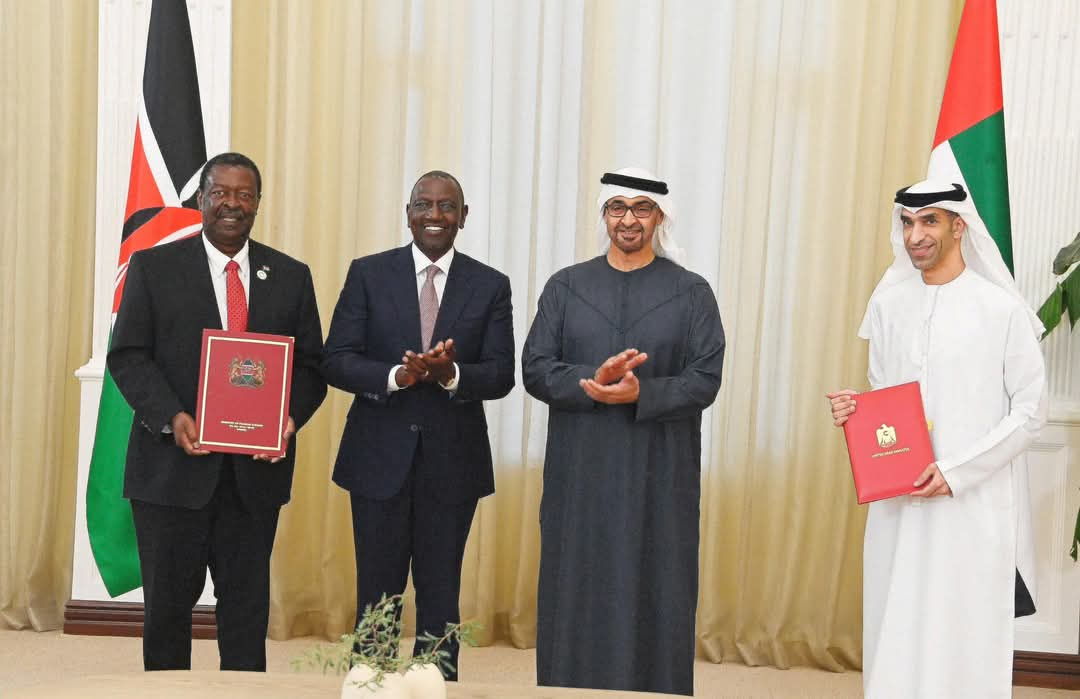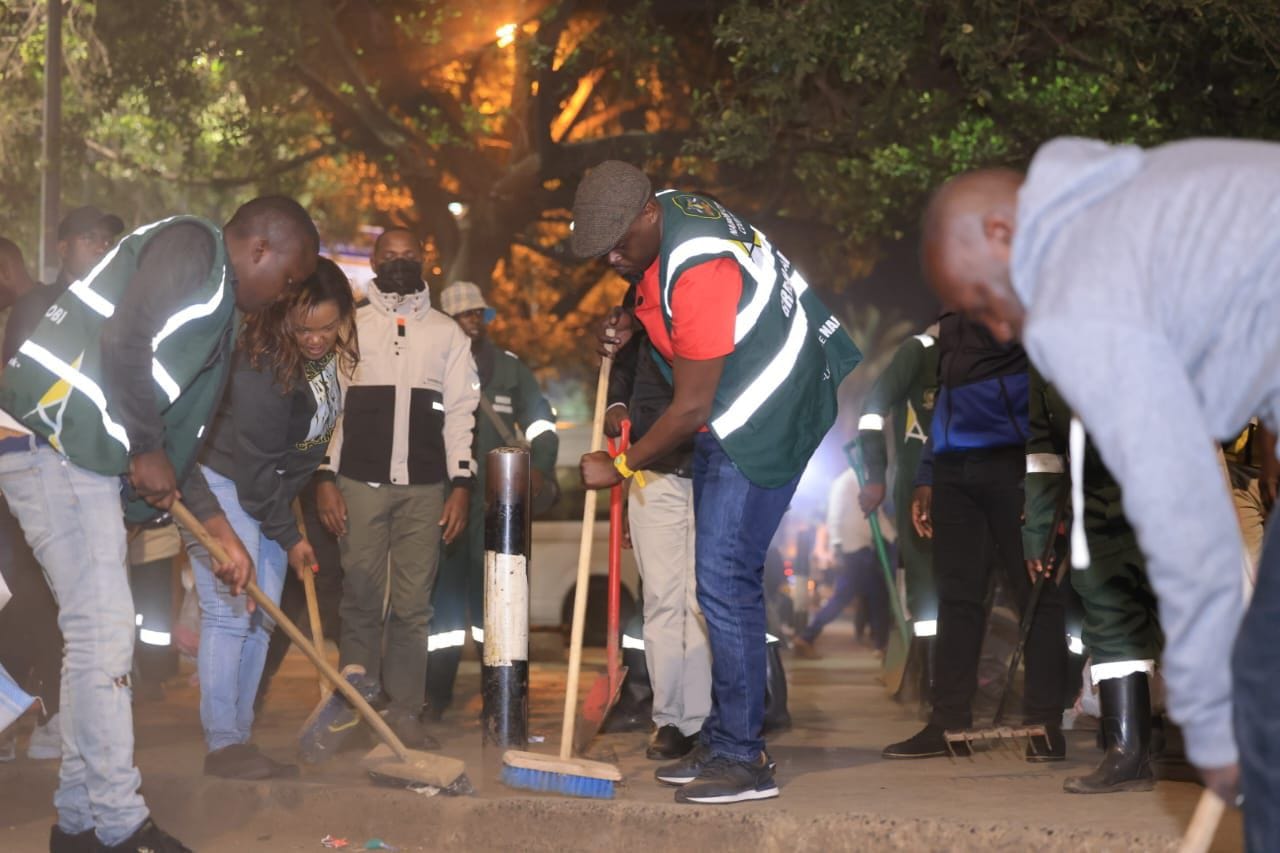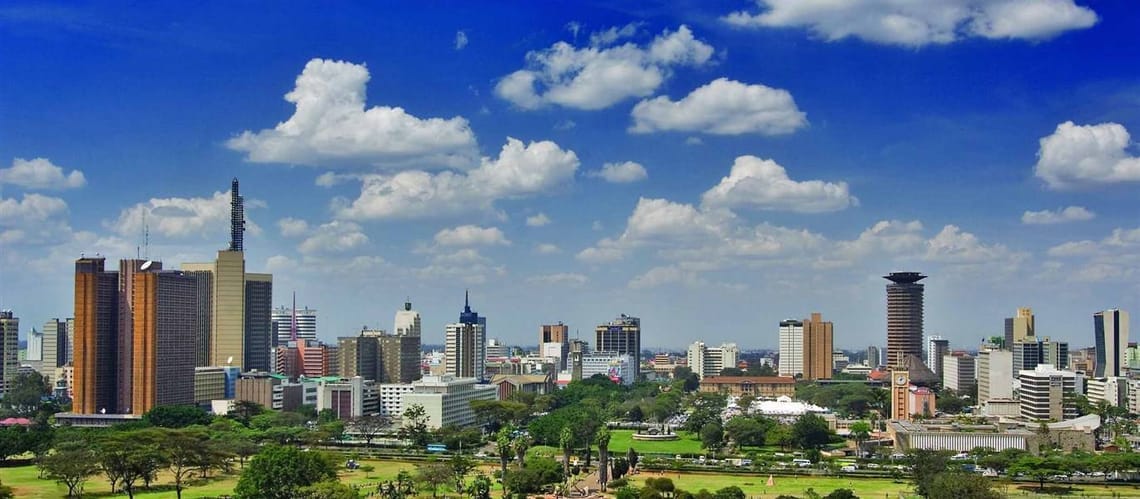17 January 2025

Good morning. From digital police stations to royal drama, Kenya's kicking off 2025 with quite the storyline. While Nairobi's getting a clean sweep (literally) and fuel prices do their dance, President Ruto's making moves in the UAE that could reshape East African trade. Let's dive into a week where tradition meets transformation, and brooms meet bureaucracy.
TRADE
President Ruto's UAE Mission

President William Ruto's visit to the United Arab Emirates marks a significant push to strengthen Kenya's economic and diplomatic ties with the Gulf nation. The visit, centered around the Abu Dhabi Sustainability Week Summit, focuses on multiple strategic initiatives that could reshape East African trade dynamics.
At the forefront of discussions is a comprehensive economic partnership agreement (CEPA) between Kenya and the UAE. This deal carries particular weight given that the UAE already stands as Kenya's fourth-largest export market globally. The agreement aims to boost trade relations, with a special focus on agricultural exports - particularly livestock and vegetables.
A major highlight of the negotiations is Kenya's ambitious infrastructure proposal. The government is seeking UAE's support to extend the Standard Gauge Railway (SGR) into South Sudan, a move that could significantly enhance regional connectivity and trade routes in East Africa.
The visit also emphasizes Kenya's commitment to sustainable development. President Ruto is actively pursuing investments in renewable energy and green technologies, aligning with global climate action goals. These discussions take place against the backdrop of the Abu Dhabi Sustainability Week Summit, where climate action and sustainable development take center stage.
The partnership is expected to attract more Foreign Direct Investments (FDIs) to Kenya, potentially catalyzing economic growth across various sectors. This multi-faceted approach - combining trade, infrastructure, and sustainability - represents a comprehensive strategy to strengthen Kenya's position in the global market while addressing crucial development needs.
HEADLINES

🏙️ Nairobi County launches “sweeping” crackdown on CBD operations. The city government has initiated a comprehensive cleanup campaign targeting matatus, hawkers, and businesses in the central business district. Under Governor Sakaja's new directives, matatus face stricter regulations, while businesses must now comply with mandatory waste collection subscriptions or risk penalties. The crackdown extends to unauthorized signage removal and a ban on night parking at stages, signaling a determined effort to restore order in Kenya's capital.
👮🏾♂️ Kenya's police stations are going digital by April 2025. The government is implementing a digital Occurrence Book (OB) system across all police stations, allowing citizens to report incidents online without physically visiting stations. This modernization initiative aims to streamline police services nationwide, making law enforcement more accessible and efficient for all Kenyans.
👑 Kenyans are pushing back against an upcoming Dutch royal visit. Over 300 citizens have emailed the Dutch government requesting the cancellation of King Willem-Alexander and Queen Máxima's March state visit to Kenya. While this would mark the first Dutch royal visit since Kenya's independence, concerns about colonial history and demands for reparations have sparked opposition. Despite the public outcry, the Dutch Ministry of Foreign Affairs confirms the four-day visit will proceed as planned.
⛽ Fuel prices in Kenya have risen for the first time in 15 months. The Energy and Petroleum Regulatory Authority announced new prices effective until February 14, with diesel seeing the most significant increase of Sh2 per litre to Sh167.06 in Nairobi. While petrol prices saw a minimal rise to Sh176.58, kerosene users will feel a bigger pinch with prices jumping to Sh151.39. This marks a shift from the recent trend of falling prices that began in November 2023, though current rates remain well below October 2023's peak when diesel and petrol cost Sh205.47 and Sh217.36 respectively.
ECONOMY
Tale of Two Economies

Kenya's economic landscape is experiencing a dramatic shift as 16 counties surge ahead of national growth rates, highlighting both progress and persistent regional inequalities. Recent data paints a striking picture of the country's economic divide.
At the heart of this economic story is Nairobi, where banks have injected an additional Sh135 billion in lending, demonstrating strong confidence in the capital's growth potential. The impact is clear: Nairobi residents now enjoy an average income nearly triple the national average, setting them far apart from their rural counterparts.
But it's not just about Nairobi. A broader transformation is underway across the country. Sixteen counties have broken away from the pack, exceeding national GDP growth rates and reshaping Kenya's economic map. Among these success stories is Lamu County, which has shown remarkable income growth despite starting from a lower base.
The distribution of economic opportunity closely follows workforce patterns. The top 10 counties by working population show significant variations, reflecting the uneven spread of job opportunities across the nation. This concentration of labor force has become a crucial factor in determining economic success at the county level.
What's driving these changes? County-level data reveals several key factors:
- Enhanced access to banking and financial services in high-performing regions
- Strategic investment in urban centers
- Concentration of skilled workforce in economic hubs
The implications are significant for Kenya's development strategy. While some counties forge ahead, others risk falling further behind, creating a two-speed economy that demands attention from policymakers and investors alike.
As Kenya continues its economic journey, the challenge lies in spreading the benefits of growth beyond these 16 leading counties. The success stories offer valuable lessons, but the widening gap between leading and lagging regions presents both an opportunity and a warning for the future of Kenya's economic development.
ONE-LINERS
- Kenyan school principals raise alarm over delayed government funding disbursement, impacting operations as new term begins.
- Deputy President Kindiki is representing Kenya at President-Elect Daniel Chapo's Inauguration in Mozambique.
- Chief Justice Martha Koome Faces Mounting Pressure as Lawyer Nelson Havi Demands Supreme Court Judges' Removal Over Alleged Judicial Misconduct.
- The Public Service Commission (PSC) has advertised 290 ICT positions and scheduled interviews for 109 Principal Secretary positions as part of ongoing public service reforms.
- In a sweeping crackdown on professional misconduct, Kenya's Pharmacy and Poisons Board flexes its regulatory authority by suspending and revoking multiple pharmacist licenses to safeguard public health.
- Law Society of Kenya warns of constitutional crisis as it demands urgent reconstitution of Independent Electoral and Boundaries Commission, citing delays affecting boundary reviews and by-elections.
